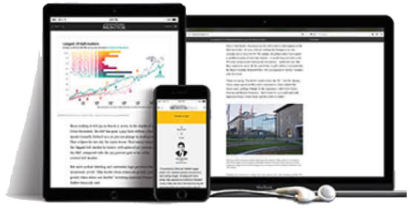'From Cold War to Hot Peace' offers a US ambassador's up-close view of Russia
Loading...
Michael McFaul served on President Obama’s first campaign in 2008 as an adviser and then as a member of his National Security Council. He was so well acquainted with Russia and its people that he personally knew many of the good and bad characters in Vladimir Putin’s and Dmitry Medvedev’s governments.
In this combination memoir and record-straightening history, McFaul describes his lifelong fascination with Russian culture and governance, from his summer studying as an undergraduate in Leningrad to his research on USSR-inspired revolutions to his activism for democracy in the newly de-Sovietized Russia in the early 1990s. As an expert on democratic reform, he knew and anticipated its long and treacherous course in post-authoritarian Russia.
From Cold War to Hot Peace: An American Ambassador in Putin’s Russia will have variously engaged audiences, which McFaul himself acknowledges: “By design this book is a mix of abstract analysis, historical narrative, and personal anecdote.… Therefore, I give all readers license to skip those passages not of interest to them, which I trust can be done without losing the arc of the story.”
I don’t recommend skipping anything, however.
President Obama, McFaul makes clear, had a good working relationship with then-President Medvedev, and lest we forget, relations between the countries became almost amiable: “Obama’s decision to praise Medvedev personally was his call – I did not write that line into the talking points. But those words reflected Obama’s belief that Medvedev represented a break with the past: someone with whom he could engage as a like-minded leader. I agreed with the president’s analysis. But expressing too much love for Medvedev was going to create problems for us with Putin, and probably for Medvedev himself. Managing this delicate balance would remain a central challenge of the Reset for the next four years.”
“Reset” was the one-word slogan that McFaul and Obama agreed on for America’s recalibration of relations with Russia. It was working to both countries’ benefit until Putin snatched back the presidency from the placeholder Medvedev at about the same time in 2012 that Obama tapped McFaul for the Russian ambassadorship.
President Putin began attacking and dismantling those win-win deals between Obama and Medvedev, and instituted anti-immigrant and anti-LBGTQ policies to fan the fires of racism and intolerance that his base favored. Putin also, you may have heard, decided to monkey with the 2016 American election.
Putin despised McFaul, whom he had long suspected of being a CIA agent, and seems to have directed the media to slander the new ambassador.
McFaul says he “felt betrayed personally by being portrayed as an enemy of Russia. I loved Russia. I was not a Russophobe or a Cold Warrior. Well before my arrival in Moscow as ambassador, I had lived several years in the country. I was the architect of the Reset.… How could they turn on us – on me – so sharply and quickly?”
Ambassador McFaul and his family were harassed every day by Russian intelligence; in Moscow, agents even shadowed McFaul’s young sons on their way to school and while they played soccer. McFaul responded by being even more open about his and the embassy’s work: “I also tried to distinguish between our government’s disdain for authoritarian policies pursued by the Kremlin and my respect for the Russian people, culture, and history. The Kremlin hated that. As one person close to the Kremlin revealed to me, my obvious love for Russia drove the Putin government nuts. I would have been a much easier target if they could have portrayed me as a Cold War Russophobe.”
Careful about providing evidence for his hard-earned opinions, the Stanford University professor is always clear and successfully assesses the level of complexity we lay-readers need to understand academic theories about revolutions and economics. It only dawned on me after a few hundred slow and steady pages that if the book were more compelling and had more headlong momentum, it would be less persuasive and convincing.
McFaul admires President Obama and seems frank in his occasional criticisms and second-guessing of him. McFaul was never a politician, but it was politics that he found himself having to learn on the job: “In conversations with the president on our ratification strategy, I could tell Obama was skeptical. Our approach was too rational. It left out the politics.”
Unusually for a public figure, McFaul regularly acknowledges his own possible errors in judgment and action: “I consider our Syria policy, including the Russian component of it, to be the most frustrating policy challenge of our administration. Of course, it is impossible to say that other strategies would have been more successful.… We wanted to end the civil war in Syria; we failed to do so.”
He is patient and remarkably shrill-less in addressing unfair or false accusations against him and the administration: “Putin is mostly wrong, but maybe a little bit right in blaming us for promoting democracy and human rights in Russia.” Despite Putin’s sharp authoritarian turns, McFaul was and remains ever hopeful for the country’s eventual democratic development.
McFaul comes across as a likable and admirable person. Obama made a shrewd choice.
For me, the by far most interesting parts of "From Cold War to Hot Peace" are McFaul’s careful accountings of those three difficult years as ambassador. “I was the U.S. representative to the Russian government and people, but also the de facto mayor of a small village located in the compound at the embassy in Moscow.… My new job demanded that I seek compromises both on missile defense and lunch options.”
His epilogue, “Trump and Putin,” is rather too careful and hedging, as if his return to academic life has softened him. McFaul is really more bold when he’s out of his comfort zone.
Bob Blaisdell reviews books on Russia and Russian literature.







